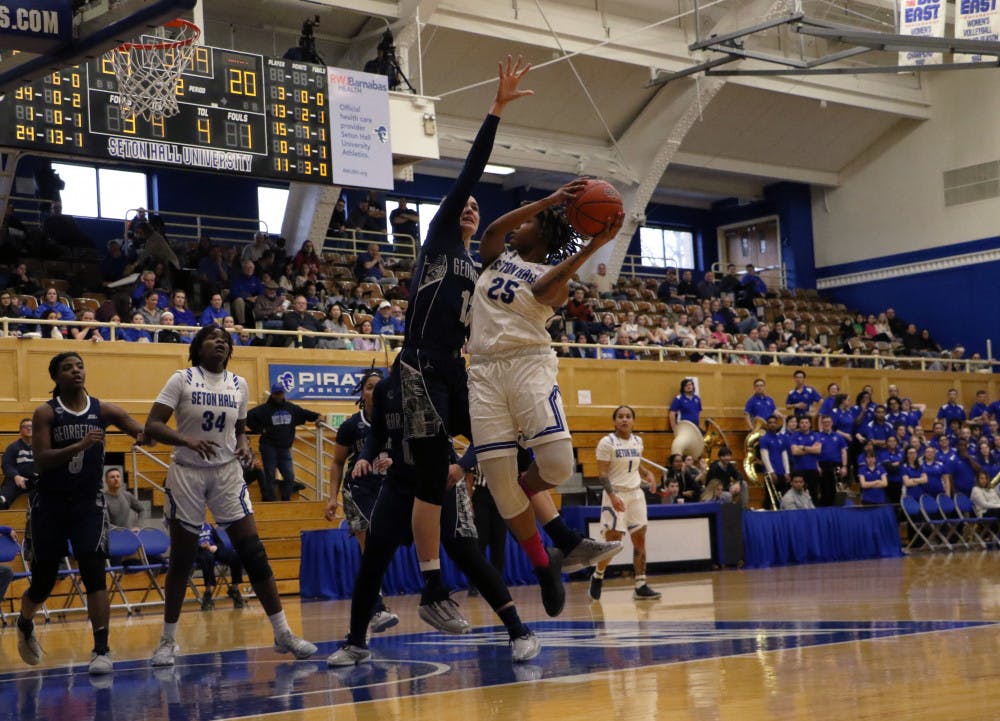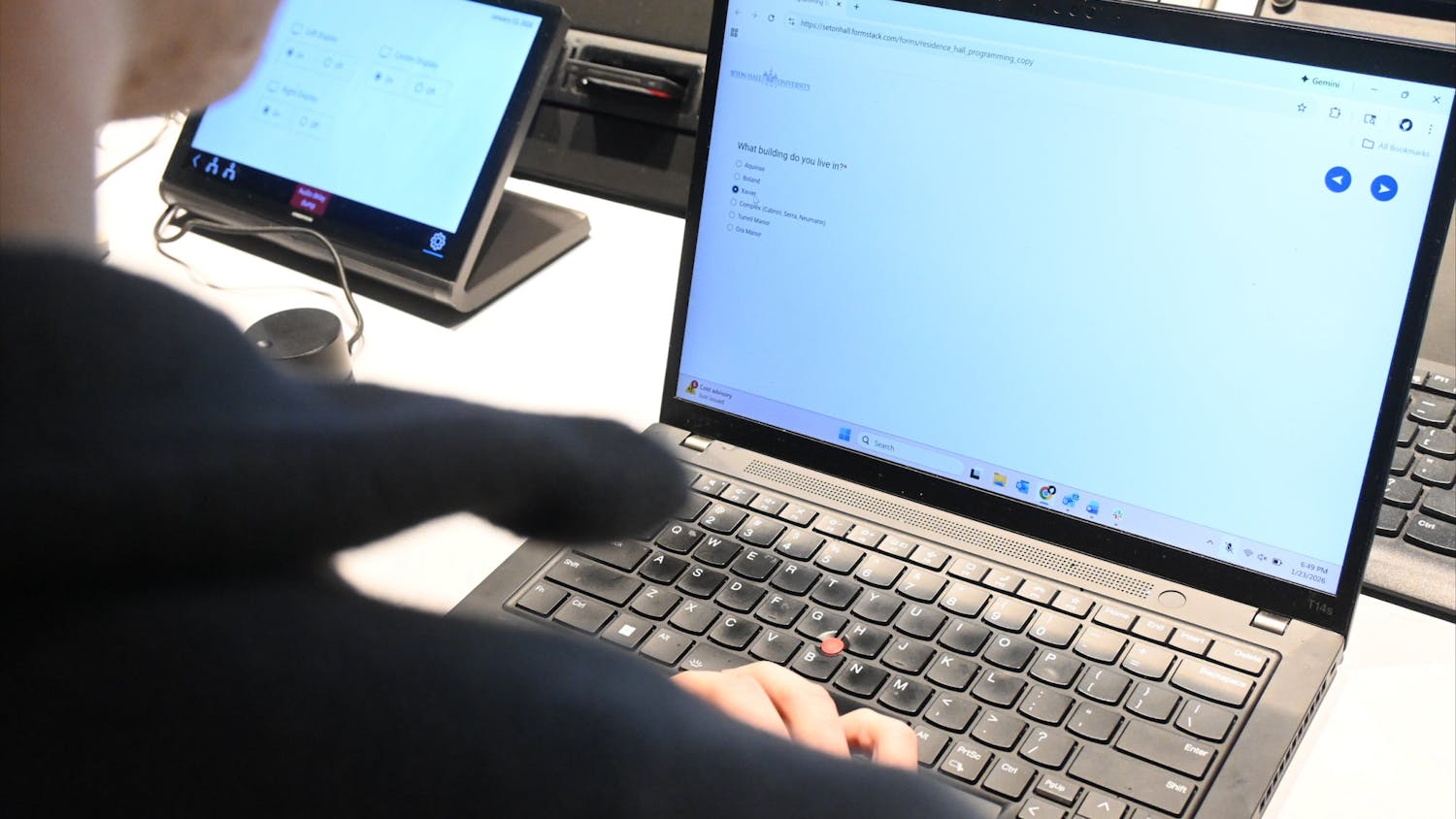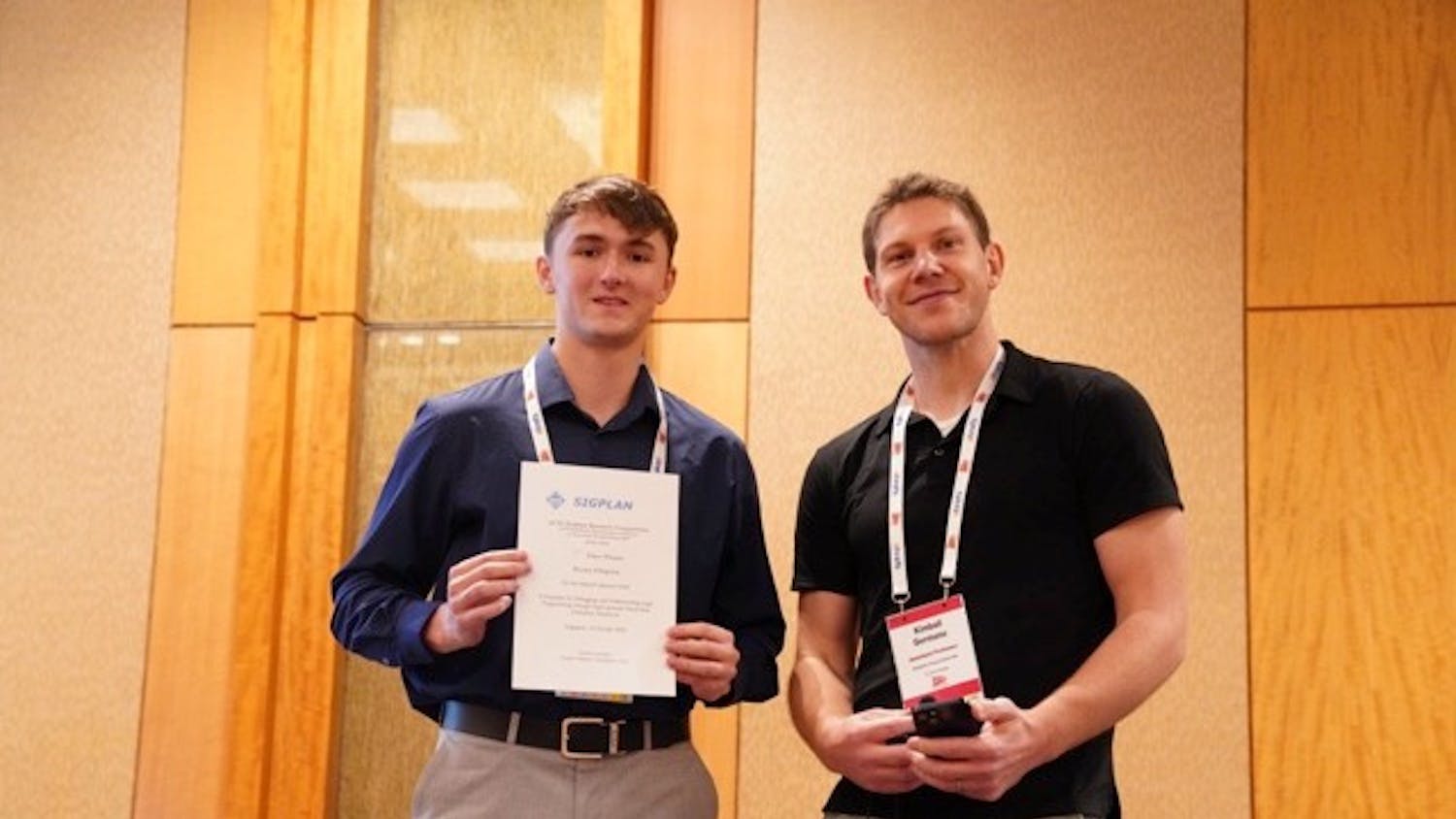[caption id="attachment_12372" align="alignnone" width="300"] NJ Army Guard[/caption]
Students of the ROTC program at Seton Hall now have the opportunity to minor in the leadership program. The provost signed off on this proposal this fall and the minor is currently in effect for classes graduating after 2015.
Lieutenant Colonel Trinidad Gonzalez, Jr. said there was a need for such recognition here on campus. He brought the idea of making an ROTC minor to an academic board that decided it should be voted on in the Faculty Senate. The Senate then voted it through to the Office of the Provost, which gave the final “yes” and recently signed off on the minor. The ROTC program will stay the same, but the cadets will now be recognized for their work on paper.
Gonzalez explained the details of the program to illustrate how much time cadets spend working with the program, “We take the freshmen in and they’re not in charge of anything yet or anyone.”
Sophomores, he added, are put in charge of the freshmen to get them leadership experience.
The juniors in turn are in charge of eight to 80 people depending on the position that they hold. Seniors hold positions on staff and lead the entire program.
Gonzalez said that the cadets in these positions are “hands on” and have to deal with real life situations. The sophomore, junior and senior cadets are in charge of ROTC students below them. These cadets are responsible for the successes and failures of those they oversee.
Gonzalez says, each semester, on top of their regular University classes, cadets take an additional four to five credits of ROTC classes and work on 12-20 projects per semester as a whole group. The projects take on the skills of coordination and scheduling.
Junior Cadet Kirstin Bennett said, “Compared to any other program or internship most college students have available, (ROTC) teaches you time management and delegation on a level that you can’t gain at most internships or classes because you’re the one in charge of it.”
On the subject of whether or not he thinks the minor was a positive step, junior cadet Evan Doolittle said, “Army wide there’s an issue of taking all the things you do making them tangible in a way that employers see as valuable and having that minor kind of makes it easier for us to prove our value.”
Senior Cadet Operations Officer Samuel DeWerth-Jaffe agreed with Doolittle. “It’s a leadership factor. What ROTC does is works with those people to find their own leadership style and puts out leaders all over the place. That’s kind of the beautiful part of ROTC that doesn’t get seen a lot.”
These leadership skills were also emphasized by Junior Cadet Sasha Pierre-Louis and Senior Cadet Brent Warn. Warn is in charge of public affairs.
“You develop your own leadership style. You learn how to manage and you have free rein to deal with people how you choose,” Pierre-Louis said.
As a graduating senior going into the National Guard, Warn spoke about his current experiences trying to show future employers what ROTC is without having an official document recognizing his achievements.
“The lessons that we’re learning in how to be a leader and not just a manager, they’re priceless so it’s definitely something (we) can use whether (we) continue to be a full time soldier or (have a) civilian career,” he said.
Alexandra Gale can be reached at alexandra.gale@student.shu.edu.
NJ Army Guard[/caption]
Students of the ROTC program at Seton Hall now have the opportunity to minor in the leadership program. The provost signed off on this proposal this fall and the minor is currently in effect for classes graduating after 2015.
Lieutenant Colonel Trinidad Gonzalez, Jr. said there was a need for such recognition here on campus. He brought the idea of making an ROTC minor to an academic board that decided it should be voted on in the Faculty Senate. The Senate then voted it through to the Office of the Provost, which gave the final “yes” and recently signed off on the minor. The ROTC program will stay the same, but the cadets will now be recognized for their work on paper.
Gonzalez explained the details of the program to illustrate how much time cadets spend working with the program, “We take the freshmen in and they’re not in charge of anything yet or anyone.”
Sophomores, he added, are put in charge of the freshmen to get them leadership experience.
The juniors in turn are in charge of eight to 80 people depending on the position that they hold. Seniors hold positions on staff and lead the entire program.
Gonzalez said that the cadets in these positions are “hands on” and have to deal with real life situations. The sophomore, junior and senior cadets are in charge of ROTC students below them. These cadets are responsible for the successes and failures of those they oversee.
Gonzalez says, each semester, on top of their regular University classes, cadets take an additional four to five credits of ROTC classes and work on 12-20 projects per semester as a whole group. The projects take on the skills of coordination and scheduling.
Junior Cadet Kirstin Bennett said, “Compared to any other program or internship most college students have available, (ROTC) teaches you time management and delegation on a level that you can’t gain at most internships or classes because you’re the one in charge of it.”
On the subject of whether or not he thinks the minor was a positive step, junior cadet Evan Doolittle said, “Army wide there’s an issue of taking all the things you do making them tangible in a way that employers see as valuable and having that minor kind of makes it easier for us to prove our value.”
Senior Cadet Operations Officer Samuel DeWerth-Jaffe agreed with Doolittle. “It’s a leadership factor. What ROTC does is works with those people to find their own leadership style and puts out leaders all over the place. That’s kind of the beautiful part of ROTC that doesn’t get seen a lot.”
These leadership skills were also emphasized by Junior Cadet Sasha Pierre-Louis and Senior Cadet Brent Warn. Warn is in charge of public affairs.
“You develop your own leadership style. You learn how to manage and you have free rein to deal with people how you choose,” Pierre-Louis said.
As a graduating senior going into the National Guard, Warn spoke about his current experiences trying to show future employers what ROTC is without having an official document recognizing his achievements.
“The lessons that we’re learning in how to be a leader and not just a manager, they’re priceless so it’s definitely something (we) can use whether (we) continue to be a full time soldier or (have a) civilian career,” he said.
Alexandra Gale can be reached at alexandra.gale@student.shu.edu.





